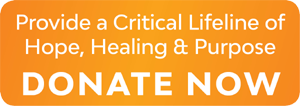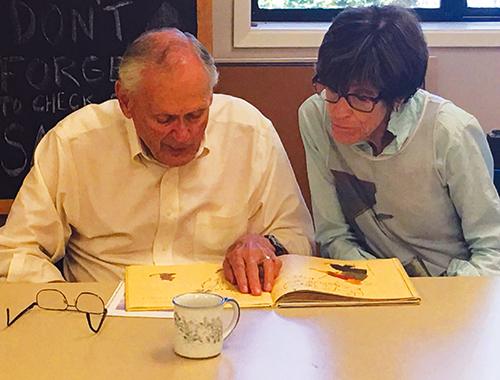November is National Family Caregivers Month
At Schurig Center, we know how important family caregivers are! Every day, we see the love, commitment, time, and support family caregivers provide their loved ones as they navigate life after brain injury.
It’s wonderful that an entire month is dedicated to honoring family caregivers and providing education to the community about how much caregivers offer those in need of help.
Did you know?
- Family members provide over 75% of caregiving support in the United States.
- 44 million Americans care for a family member, friend, or neighbor.
When a person experiences a brain injury, it can affect the entire family. Providing physical, emotional, and financial care is a daily reality for millions of American families and it poses a great strain on the caregiver, many of whom are struggling to balance work and family responsibilities. Caregivers are heroes that deserve honor and recognition for all they do.
Please join us this month in celebrating and thanking these heroes who do so much to keep our families and communities strong, each and every day.
Here’s just a few ways
to celebrate your family caregiver…
Start by saying “thanks.”
A “thank you” can go a long way in showing your love and appreciation. It can be as simple as sharing a heartfelt “thank you” in person or in a card, poem, letter, or note.
Give them a day off.
Plan a date to give your caregiver a day to do whatever they want. If it’s challenging to manage your daily tasks without your caregiver, consider hiring temporary help as an alternative or ask a family member of friend to help out for the day.
Give a thoughtful gift.
Think about what your family caregiver would appreciate most. Flowers, a gift card, a book or even a favorite coffee drink are all wonderful gifts that show your appreciation for all of their hard work.
Spend some quality time together.
Quality time with your caregiver can be a great way to remember your shared bond beyond the daily routine of caregiving. Watch a favorite movie together, play a board game, look through old photo albums, or sit together in the park. Spend some time together doing something that brings you both joy.
Remind them to take some time for themselves.
Family caregivers are less likely than non-caregivers to practice preventive healthcare and self-care behavior. Give your family caregiver the nudge they need to take some time out of the day for themselves. Whether it’s 15 minutes or a couple of hours of taking a nap, reading a book, or exercising, a little bit of ‘me’ time will go a long way to help your caregiver recharge their battery.
If you are a caregiver, please remember…
You are not alone. We are here to help!
Schurig Center offers services to support family members in adapting to the life changes that result from a brain injury, including resource referral assistance, consultation and a Family and Caregiver Support Group.
For more information, contact our Resource & Intake Specialist at:
(415) 461-6771 x100
resources@schurigcenter.org




